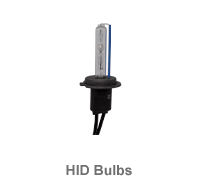 |
 |
 |
 |
 |
What are Lumens Xenon HID Conversion Kits?
HID is an acronym for High Intensity Discharge. HID conversion kits refer to a combination of bulbs, ballasts, and sometimes wires harnesses that will convert vehicles operating with regular halogen bulbs to HID Xenon Lighting technology. This technology has been used for many years in higher end vehicles such as BMW, Mercedes Benz, etc. Standard halogen bulbs 'burn' a filament inside the bulb to produce light. The bigger the 'burn', the more light you get. Unfortunately, this also produces more heat & draws more power. Lumens HID conversion kits uses the latest Xenon lighting technology to produce substantially more light efficiently. Our conversion kits draw less power (only 35W) yet produce 3 times more light than a standard halogen bulb. The Xenon HID market is divided into 2 general groups: 1) those looking for cosmetic upgrades for their vehicles and 2) those who have difficulties seeing at night while driving |
How does it work?
The ballasts included in a Lumens HID conversion kit converts the 12V DC with only 35W draw (approximately 20W less than your halogen bulb) from your vehicle's light bulb plug to approximately 23,000V AC. This power is then used to create an arc of electricity in the specially designed Lumens Xenon bulbs. This arc of electricity ignites the Xenon gas in the bulb, and in turn creates an intense light source similar to that of the Sun. Because the light is created by an arc of electricity, and not from 'burning' a filament, the heat created by the light is substantially less than that of a standard halogen bulb. |
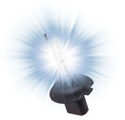 |
|
|
 |
 |
 |
 |
 |
 |
 |
| |
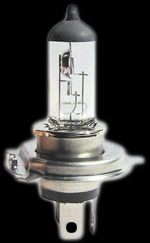 |
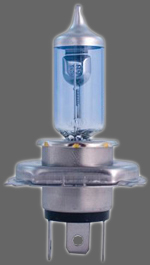 |
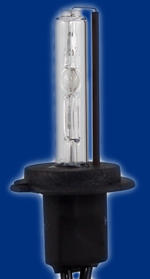 |
Bulb Type |
Factory OE Halogen |
Super White (PIAA, Nighthawk, Silverstar, etc) |
Lumens Xenon HID |
|
|
|
|
Glass Type |
Quartz |
Quartz |
UV-Cut Quartz |
|
|
|
|
Light Output (in Lumens) |
as low as 750 |
can be lower than 750 |
up to 3200 (over 3 times brighter!) |
|
|
|
|
Power Consumption (Low Beam) |
55W |
55W - 100W |
35W |
|
|
|
|
Expected Lifespan |
350 hours |
30 - 150 hours |
3000 hours |
|
|
|
|
Heat Generated |
100% |
150% |
60% (almost 1/2 the heat) |
|
|
 |
 |
 |
|
 |


